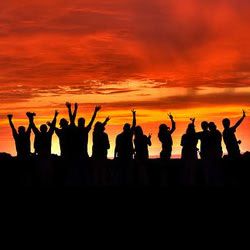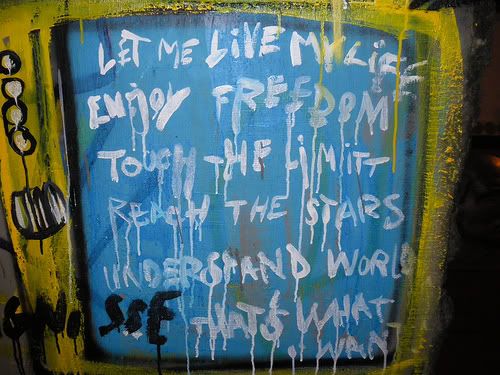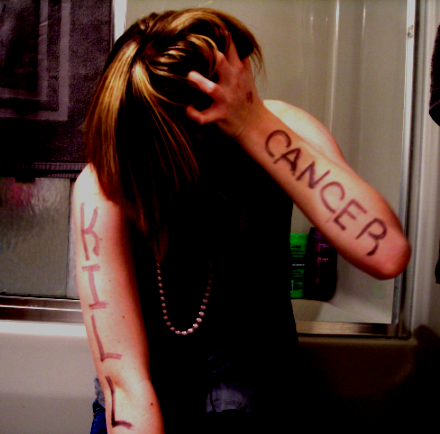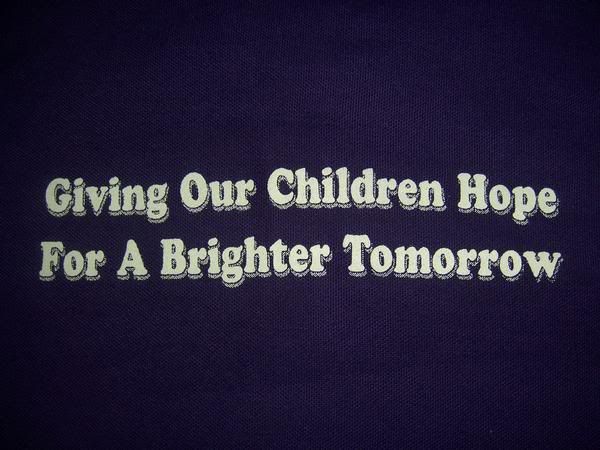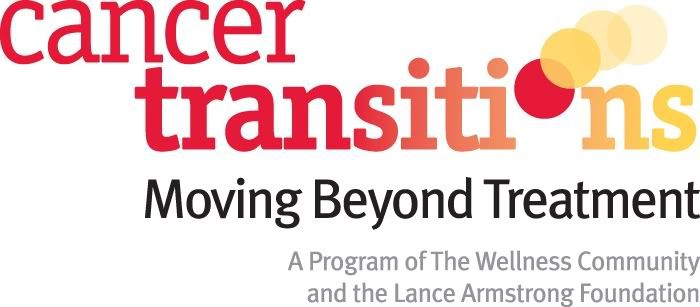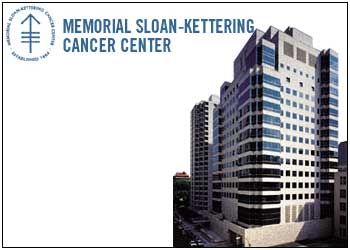About a year ago, I was asked to participate in a case study for MSKCC (Sloan Kettering) for previous teen cancer patients. The study consisted of an interview which lasted somewhere around an hour with a woman named Sarah Shankman, an assistant for the psychologist Dr. Jennifer Ford. Just recently I have decided to find out more about Dr.Ford and her efforts toward the case study and practice within psychology. On May 3rd, I ventured across the water on a bright orange ferry to talk with Dr. Ford , it was my first time meeting her. I was on a mission to gain more knowledge about her passion and understand her personal history in the field of Psychology. Dr. Ford is an assisting attending Psychologist in Sloan Kettering within the departments of Psychology, Behavioral Science and pediatrics. She attended Washington University in St. Louis where she received her B.A. and Kent University where she received her M.A. and P.H.D. Dr. Ford has been working in MSKCC since 2000.

Sloan Kettering Pediatric Center
J.A: So, just for some background information, what made you step into the field of Psychiatry in general, aside from working for Sloan?
Dr.F: That’s a hard question. As an undergrad I was always interested in people, like what makes people tick and what makes us do the things that we do and as I learned more about it, I learned more about Health Psychology- meaning the study of what happens to people who are faced with a chronic illness. Whether it’s Diabetes…cardiac problems…cancer and I became very interested in the issue of resilience. So opposed to what a lot of traditional psychiatrists or what psychology looks at, which is sort of the [deficit] of problems, I was really interested in what makes people do well when faced with something that is life-altering and potentially life-threatening. Some of my work was done in HIV and HIV prevention in graduate school and I had done some work in Oncology… and then I came here and just fell in love with it and I’ve been here ever since.
J.A: How many years have you actually been here?
Dr.F: I’ve been here since 2000.
J.A: Wow, definitely a good amount of time there…so why Sloan Kettering? Is it mainly because of all the access to the patients you can get your hands on?
Dr.F: Well, it’s actually a combination of things, some of it is working with incredible patients and just the diversity in general…We’re such a big institution, we see a lot of diversity here. Some of it is also the physicians- I feel like I work with some of the best physicians in the world, I actually can’t imagine being anywhere else.
J.A: I definitely agree with you there, I had never gotten such good treatment from anywhere or anyone else in a hospital environment, it’s obvious that they know what they’re doing. Especially with the pediatric center, even though I was 17 and wasn’t interested with a lot of what they did for the kids, I felt that it was still really great how they constructed all the events and entertainment for kids within the in and out-patient facilities.
Dr.F: Well, it does raise an issue as a professional both here and thinking nationally about being 17 and diagnosed. I think you don’t really quite fit in peds and you don’t fit in adult from a psychological standpoint, but from a medical standpoint, you probably fit in peds because they know the disease and they know what they’re doing. But I think there’s a real national push to start trying to figure out what you do with an adolescent or young adult and where they fit.
J.A: Very interesting point you just brought up which brings me to my next question. Can you talk a little bit about the case study you performed on myself and other pervious teen, cancer patients? What do you intend the outcome to be?
Dr.F: I became very interested in the issue of how cancer fits into the whole sense of identity and self because I think it’s not a discreet event, not only is it life-altering in the moment, but it’s something you live with every day for the rest of your life. Since I see patients and do research, I saw with my patients this real sense of telling me “It changed me” in many ways …and I really became interested in figuring out…how can we explain how it fits in to sense of self both in a functional way and a way that maybe doesn’t help people so well? With the intent of figuring out what our intervention would be as well. How would we help people, when would we help people and WHAT would it look like? We’re doing a 3 part study…we’re finished with individual interviews, we’ve done almost 30 individual interviews with all people who were diagnosed during a particular age of diagnoses which ranged between 15 and 19 years of age- everyone was between the age of 15 and 25 at the time when we interviewed them. We then conducted 4 focus groups which were separated by age and gender and are still going through the analysis of that… and the next piece that we actually have just started with is to then survey 300 people with a traditional paper and pencil questionnaire. What that allows us to do is to take what we learned from the individual interview and the groups and say, how does this generalize to a larger group? That’s really when you want to design an intervention because its not necessarily designed for one person only, its what we can implement on a larger scale and what’s common across people. We’ve seen already through the interviews, really common themes that people are raising.
J.A: I know that Sarah, your assistant, was the person who interviewed me a year ago, but do you also interview as well?
Dr.F: Well, I did the groups and Sarah actually conducted all of the interviews herself even though I’ve listened to every recorded interview… and what we do is get a transcript and get them transcribed almost like a word file. There are 4 of us going through them and coding the main themes… its like taking the computer and highlighting in different colors the different themes that come up and allows us to figure out all of the common themes that people raise individually.
J.A: So, what is the major theme that you’ve gotten from all of these interviews so far?
Dr.F: Thematically, theres a couple things that are very striking to me, but one of the things is, that people really vary by where this sense of being a “cancer survivor” comes from, I’m not sure everyone really identifies with that term. I think it varies from where people have found a way to place it and I think some people, [like you] who feel almost as if it didn’t even exist…there are some people who absolutely do not want to identify with it at all, and then there are many people who sort of embrace it and it becomes a very big part of their life, [ I.e] how they introduce themselves to people…how they think about themselves and some of those people also may choose to do advocacy. I think the other thing that we really see is a real sense of disruption. Adolescence is a time where you’re trying to separate from your parents and while also trying to figure out who you are; all of these being big identity issues, and then all of sudden somebody comes along and says “Oh, by the way, you’re sick.”Some of these people had moved away and had to come home or missed out on major social events and social activities that are a big part of a teens world; peer relationships have been interrupted.. really finding out who your friends are and aren’t..and so on. My patients have ranged from the age of 2 or 3 to 75 and I can tell you its much different being diagnosed at the age of 2 or 3 then that of someone who’s 17 or 75, and research wise, we don’t know a lot about that adolescent disruption. Another popular theme is this great sense of appreciation, I see a lot of people react afterwards like “I don’t want to waste any time” or “I don’t sweat the small stuff” type of attitude and also the different types of perspective from others around them. The biggest thing is the sense of maturity at a younger age and I think people may see that as both of an asset and a detriment-an asset because they feel like their more mature, almost like a little adult, and a detriment because a lot of people don’t want that sense of mind-frame at ages like 15 or 17 years old; this also raises the issue of having a lot of difficulty relating to their peers.
J.A: I can tell you that a lot of what you’re saying with the themes is exactly what I went through and am still going through especially with the notion of wanting to relive the time I’ve spent in a hospital bed.
Dr.F: Thats another big theme we like to call, “making up for lost time.” A lot of other things people talk about has to do with risky behavior like bungee jumping or drinking and partying.. really just want to get back to being young, and that’s a huge, huge theme people raise.
J.A: Just out of curiosity, and I know you can’t really talk about individual experiences due to confidentiality, but was there someone during those interviews that stood out for you the most or someone you felt you connected with the most?
Dr.F: I do this for a living so I feel like they all stand out…not trying to avoid the question…but everyone has their own unique story even before they had cancer and stand out in their own way which is what I love about doing interviews. Even though regular research studies are constructed in more of a generalized fashion and questionnaire based, theres something about doing individual interviews that is so amazing, because I believe everybody’s story is important and meaningful…so I don’t know if theres one person that really stands out but really just little bits of everybody. The two things that I really took away from it were not only the common threads throughout, but each of the things that made each person sort of unique, which is neat because as a researcher… you dont have many opportunities to get to know people on a personal level. Im lucky because Im a clinician as well so it’s nice to have both [experiences].
J.A: I can definitely get the sense that your involvement with the patients and the type of care you lend out to your patients is something very special and it’s obvious that this practice is something extremely important to you. Just from sitting across from you and listening, I can tell that you truly care and love what you do. I also can tell you that even though the experience that I had was horrible and traumatic, still I feel that watching someone I care about go through it would be a much worse situation.
Dr.F: Once again, another theme raised in the interviews. Not only having someone else go through it, but watching their parents have to watch THEM go through it, was worse than the actual treatments. So people would say things like “ya so, I went through chemo and radiation and it sucked… but seeing the look on my dads face or watching him cry like he did, was worse.” So I think people feel this little bit of protectiveness and also a little bit of guilt about what their family went through- could be either what they gave up financially or psychologically and emotionally.
J.A: With anyone who is a survivor or is battling right now with cancer, is there any advice that you would give them? What would you say to them?
Dr.F: Well, I think it’s hard to prescribe one piece of advice for everyone because ya know, one size does not fit all, but I would say most people have said to me…connecting with someone else who was young and going through something similar was invaluable. I think after the fact, people certainly gain the incredible sense of, “oh, someone gets it!” because I think no matter how much your family saw you go through or how much your friends were there, they haven’t been through it in the same way and I think probably don’t live with the same fears and anxieties as a survivor would…people would say to me, to connect with someone else who’s a twenty-something year old and kind of understands those fears and anxieties of the aftermath within survival, can be incredibly beneficial. Everyone has their own way of doing it whether it be through the internet or in person but either way, there is a better sense of understanding there.

Many thanks to my new found friend, Dr.Ford, for taking the time out of her schedule to sit and talk with me. It certainly was an amazing conversation and a pleasure to meet with her.











